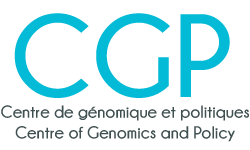Profile
Calvin Ho
Dr Calvin Ho is Associate Professor with the Monash Law School, a Research Fellow of the Centre for Medical Ethics and Law (CMEL) at the University of Hong Kong (HKU), a Fellow of PHG Foundation at the University of Cambridge, and a Fellow of the Royal Society for Public Health UK. He co-chairs the Expert Group of the World Health Organization (WHO) on the Ethics of Social Listening and Infodemic Management, and is an Ethics Board member of Médecins Sans Frontières (Doctors Without Borders).
Prior to his current appointment, Calvin was Associate Professor with HKU Faculty of Law, and Co-Director of CMEL, which is jointly run by the Faculty of Law and Faculty of Medicine at HKU. Before this, he was Assistant Professor with the Centre for Biomedical Ethics of the Yong Loo Lin School of Medicine at the National University of Singapore, and also Co-Head of the World Health Organization Collaborating Centre on Bioethics in Singapore. Calvin has practiced law in London and Singapore with Messrs Linklaters Allen & Gledhill, and served as an Assistant Director of the Legal Aid Bureau (Ministry of Law) in Singapore.
Calvin’s research is on global health law and ethics, law and ethics in the context of emerging health technologies (with focus on Artificial Intelligence and data analytics), and on medical law and ethics. He is an editorial board member of Medical Law Review, Medical Law International and Asian Bioethics Review (formerly Editor-in-Chief). Calvin has served as an expert consultant to WHO and Health Action International, and as an expert witness of the Medical Protection Society. He is the author of Juridification in Bioethics (Imperial College Press, 2016), an author of the WHO Guidelines on Ethical Issues in Public Health Surveillance (World Health Organization, 2017), and an editor of the monographs Genetic Privacy (Imperial College Press, 2013) and Bioethics in Singapore (World Scientific, 2010).
Calvin’s current research projects includes:
- Regulation and governance of medical devices, with focus on Artificial Intelligence and digital health technologies, in respect of which he leads a research project funded by the Research Grants Council of Hong Kong and the WYNG Foundation, and is also involved in research projects funded by the Canadian Institutes of Health Research and the Swiss National Research Foundation;
- One Digital Health, or the digitalisation of One Health initiatives in response to public / global health threats like antimicrobial resistance, funded in part by the British Academy; and
- Legal and ethical aspects of public health responses to an infodemic, with initial funding from the WHO.

